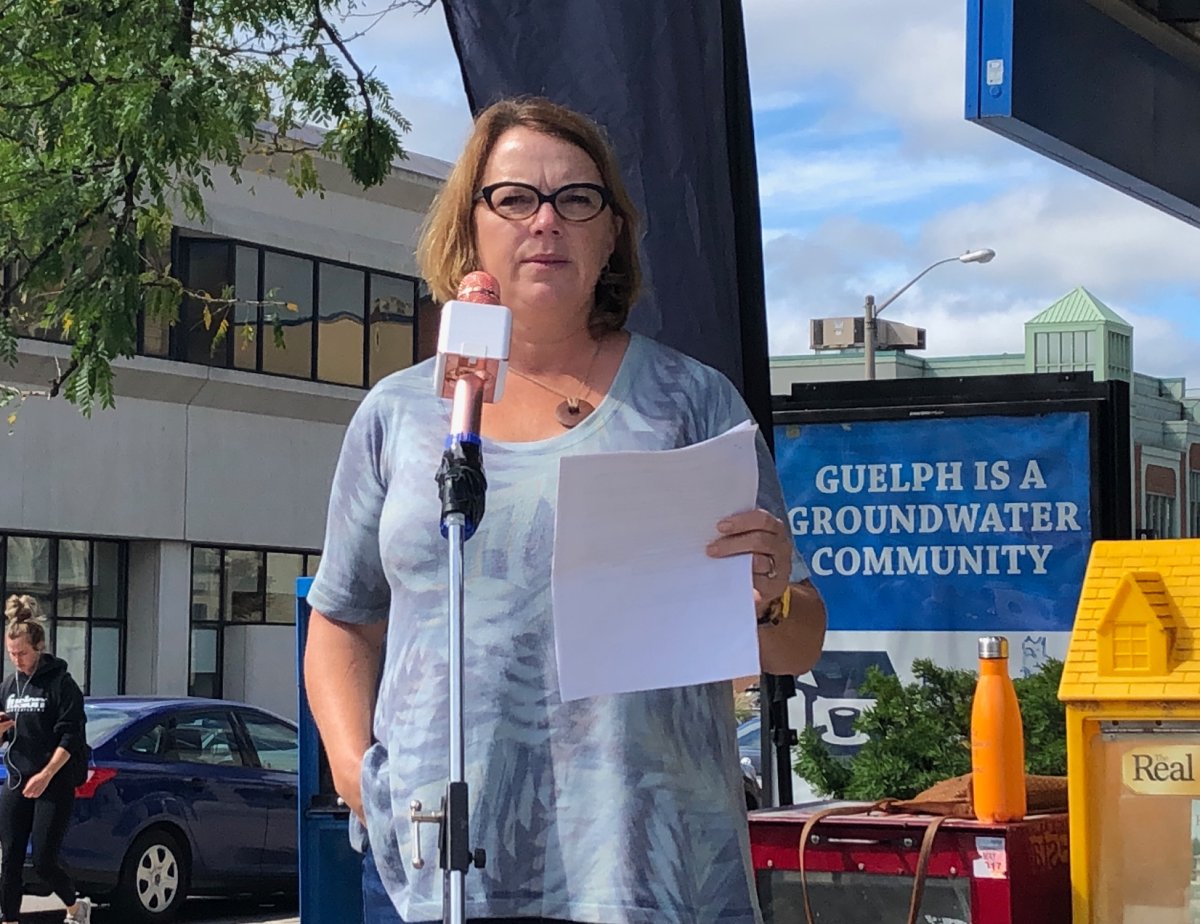A Guelph mother is sharing an important message after her son died of fentanyl poisoning last fall.

“Death by overdose does not discriminate,” Dorothy Bakker told a crowd gathered in downtown Guelph on Thursday to mark Overdose Awareness Day.
Her 25-year-old son, Stephen Emslie, died in October 2017 after using cocaine that was laced with the deadly opioid. A toxicology report showed Emslie had five times the lethal amount of fentanyl in his blood.
“I know he didn’t want to die. I consider it murder,” Bakker said.
Bakker, a family physician in Guelph who works at the university, said the day before he died, her son submitted a grant application to pursue his PhD.
BELOW: Dorothy Bakker delivers her keynote speech at an event in Guelph to mark Overdose Awareness Day
“He had a promising future,” Bakker said and added that Emslie had a history with bipolar disorder and was a recovering cocaine addict who had relapsed.

Get daily National news
“He completed an addiction program, he got sober and became an AA (Alcoholics Anonymous) sponsor, and he helped others,” she said. “He was in recovery, but obviously he relapsed.”
“Like others, he was loved and he had family and he should’ve had a different future.”
Bakker said months before Emslie died, she had warned him about the dangers of fentanyl, but he told her not to worry.
“And like most moms, I listened to him and didn’t persist,” she explained.
Along with sharing her son’s story, Bakker is trying to spread more awareness of the opioid crisis in Guelph and who it affects.
She said people dying from drug overdoses aren’t just those who are addicted, marginalized or homeless.
“It also happens to those who have jobs, are going to school, who have families and live in homes,” Bakker said. “Even those who have never used opioids before, even those who use drugs occasionally.”
BELOW: Aug. 31 is International Overdose Awareness Day and a walk will be held to bring attention to the cause. Chadd Cawson lost his sister to an overdose and speaks on the experience.

The event was also used to promote the availability of free naloxone kits from various organizations and pharmacies. Nurses were also on site providing training on how to use the overdose-reversing drug.
There was also a strong outpouring of support for the overdose prevention site (OPS) at the Community Health Centre on Wyndham Street. The OPS pilot project is scheduled to end at the end of October and its future is unclear.
Manager of the site Jan Klotz said since the doors opened on May 8, 2018, there have been over 1,200 visits by over 170 individuals and 12 overdoses have been reversed.
Klotz explained the site does not just supervise people injecting drugs but also provides individuals with a clean space, counselling, referrals to complementary services, and they have intervened in medical emergencies.
“I know the Guelph OPS alone will not solve the opioid crisis facing our community right now and to be honest, I wish there wasn’t a need for one, however, it’s clear that it is a critical ingredient needed at this time to save lives and it needs to continue,” she said.








Comments